
The opening of a Syrian Kurdish ‘representation office’ in Geneva stirs tensions
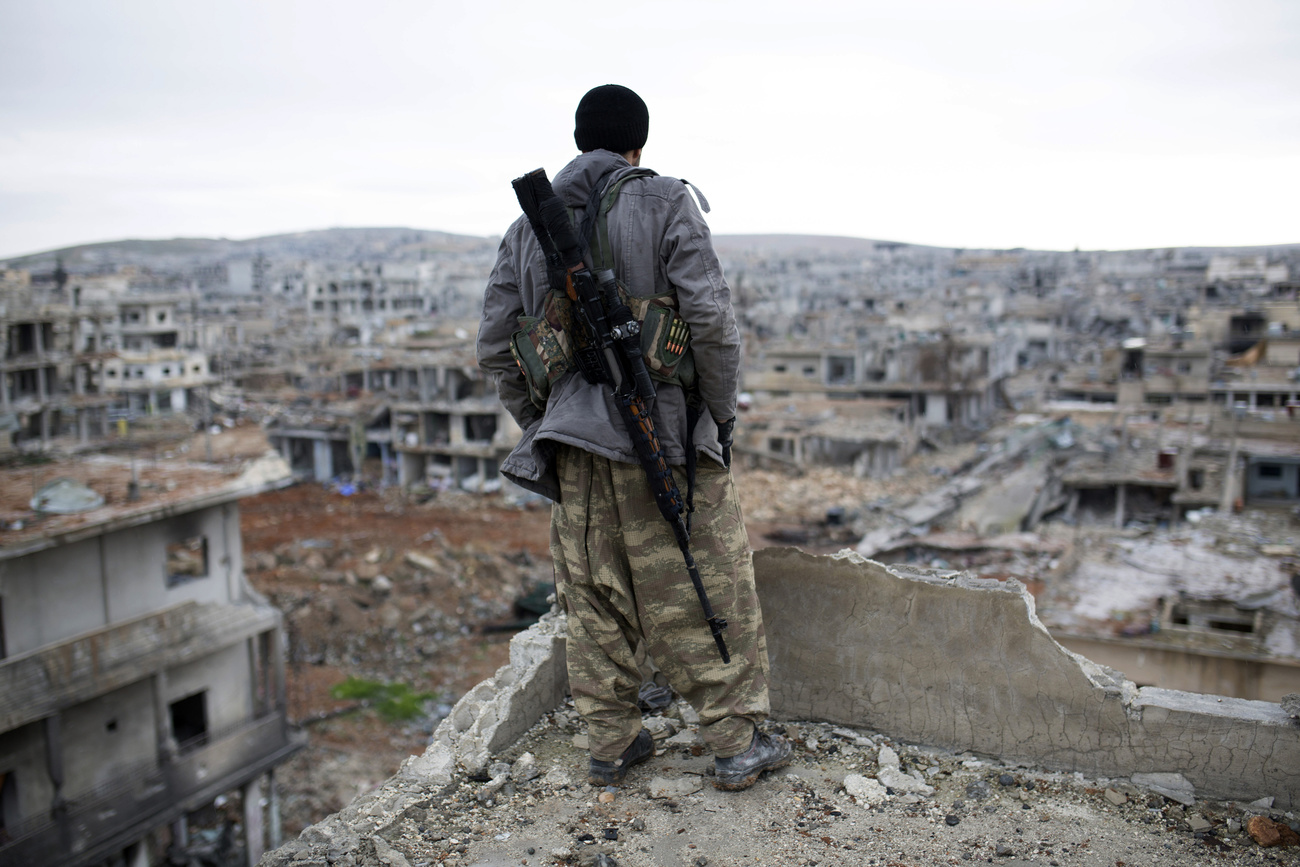
The autonomous entity in north-eastern Syria, unrecognised by any state, is seeking to build relations with international players in Geneva - where Syrian peace talks, from which it is excluded, are taking place. Turkey is furious, while Switzerland is embarrassed.
The opening of an office in a modest building in Geneva has whipped up a diplomatic storm. On August 9 the Autonomous Administration of North and East Syria (AANES) announced the opening of its representation office in Geneva. The goal is “to strengthen relations with Swiss actors, particularly with regard to the conferences taking place in Geneva to resolve the Syrian crisis”, according to Hekmat Ibrahim, its director. He adds that this initiative is not the first in Europe: the autonomous administration has offices in other European countries such as France, Germany, Sweden and Benelux.
This initiative is as delicate as it is ambiguous: What does the “representation” of a territorial entity that is not recognised by any state actually mean? AANES was created in 2018 after the region gained its autonomy in 2012 in the context of the Syrian civil war. It counts between 4-5 million inhabitants – mostly Kurds, but also Arabs, Assyrians, Christians, Turkmens and Yazidis, and it covers almost 30% of Syrian territory. It maintains close military cooperation with the United States and the international coalition via its army, the Syrian Democratic Forces.
After contributing to the defeat of the Islamic State of Iraq and the Levant (ISIL) in 2019, the Syrian Democratic Forces found themselves confronted with the thorny question of European prisoners whom European countries refuse to take back, apart from perhaps women and children. A report by Human Rights Watch counted almost 63,400 women and children, 10,000 men and 700 boys aged 14 to 17 in refugee camps, representing 58 nationalities in total.
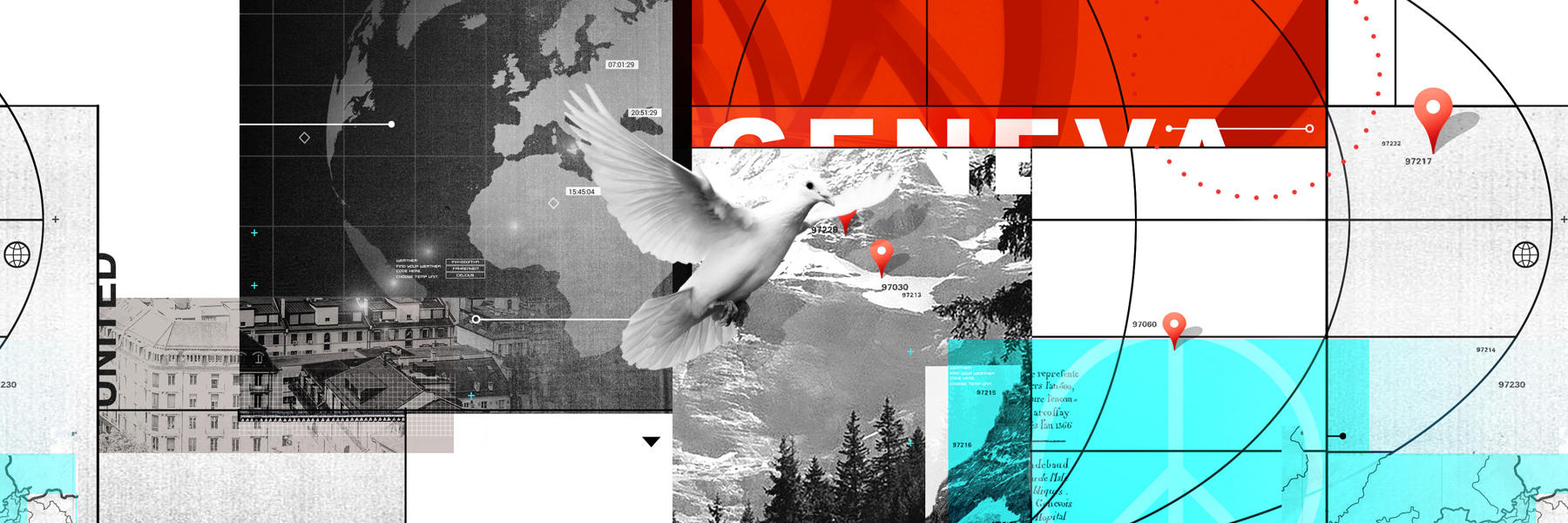
More
The changing face of International Geneva
Different points of view
With its offices, the autonomous administration aims to gradually achieve recognition as a contact point for Switzerland, European countries, the UN and so-called “International Geneva”.
“It is the same strategy that the Iraqi Kurds followed from the 1990s,” says Jordi Tejel, a professor at the university of Neuchâtel who is a specialist on the Kurdish question.
“The Kurds created a kind of consulate in Bern, where they even issued visas. These are things which don’t speak their name, but create a reality. But I think this time the goal is more to ensure their voice is heard than to be recognised as a state, because it isn’t one.”
To avoid souring diplomatic relations with Turkey, the Swiss government states clearly that the office is not a diplomatic mission but an association under Swiss civil law, which means it faces few legal constraints, unless such associations have aims that are against Swiss law.
Turkey is furious
Nonetheless, Turkey is furious. Even though the Autonomous Administration is not uniquely made up of Kurds, the Kurdish Democratic Union Party (PYD) is in charge. According to Ankara, the party is close to the Kurdistan Workers’ Party (PKK), an armed Kurdish political organisation primarily active in Turkey but also in Syria, Iran and Iraq, and which Turkey and numerous other countries consider to be a terrorist organisation. Switzerland does not consider the PKK a terrorist organisation.
“Turkey refuses to recognise the Syrian Democratic Forces, of which the YPG (the armed wing of the PYD) is a member,” says Mehmet Balci, the co-founder and co-director of Fight for Humanity, a Geneva non-governmental organisation which promotes human rights and humanitarian law in the region. “It accuses Switzerland of supporting the PKK and terrorism, but the reality is completely different.”
In the meantime, the United Nations does not allow AANES to sit at the negotiating table because of Turkish opposition.
“It’s an absolute scandal,” says Marco Sassoli, a professor of international humanitarian law at the University of Geneva. “It is one of the best-behaved of the state actors – it is the best organised and has the most stable administration. AANES has gone to great lengths to try prisoners of war and to detain them without letting them die of hunger. As far as I know, but I am not on the ground, it is behaving better than the others.”
Indeed, as an administration AANES manages different portfolios from health to education and defence and external relations. It also oversees universities, more than 700,000 students, dozens of hospitals, municipalities and prisons, and administers the justice system.
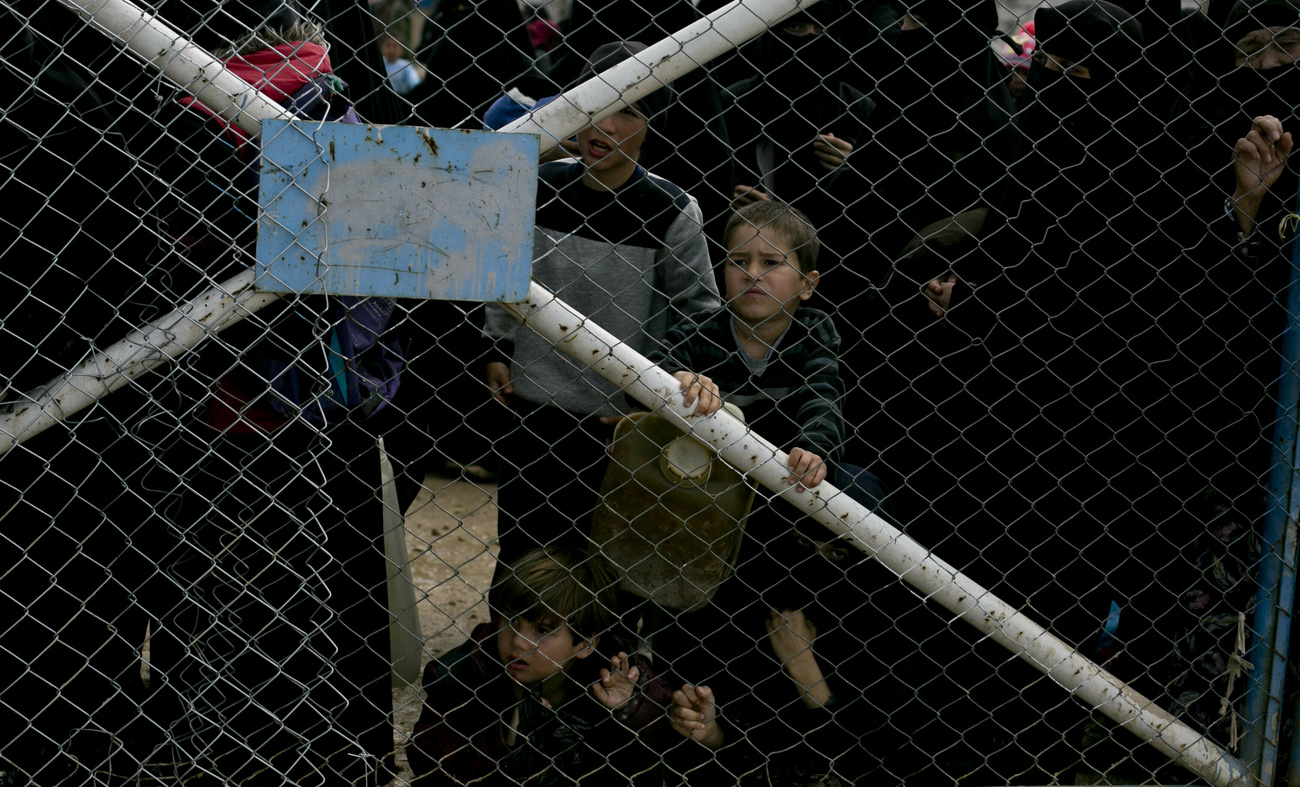
More
What will happen to Swiss minors stuck in Syrian camps?
A difficult transfer of prisoners
“Whether over here or over there, we have to have discussions with these people because they are detaining Swiss citizens whom Switzerland doesn’t want to take back,” says Sassoli. According to Swiss intelligence, about 20 Swiss nationals are still in Syria and Iraq.
“From a legal perspective, it’s very delicate because if they were tried by a state, they could be transferred to Switzerland to serve their sentences. But if they are tried by a tribunal operated by a non-state actor such as AANES and extradited to Switzerland, they could demand to be freed because their sentence is not recognised under Swiss law,” he said.
“The backdrop to this is the question of self-determination for the Kurds, which will one day need to be addressed and which doesn’t necessarily mean an independent state,” says Sassoli.
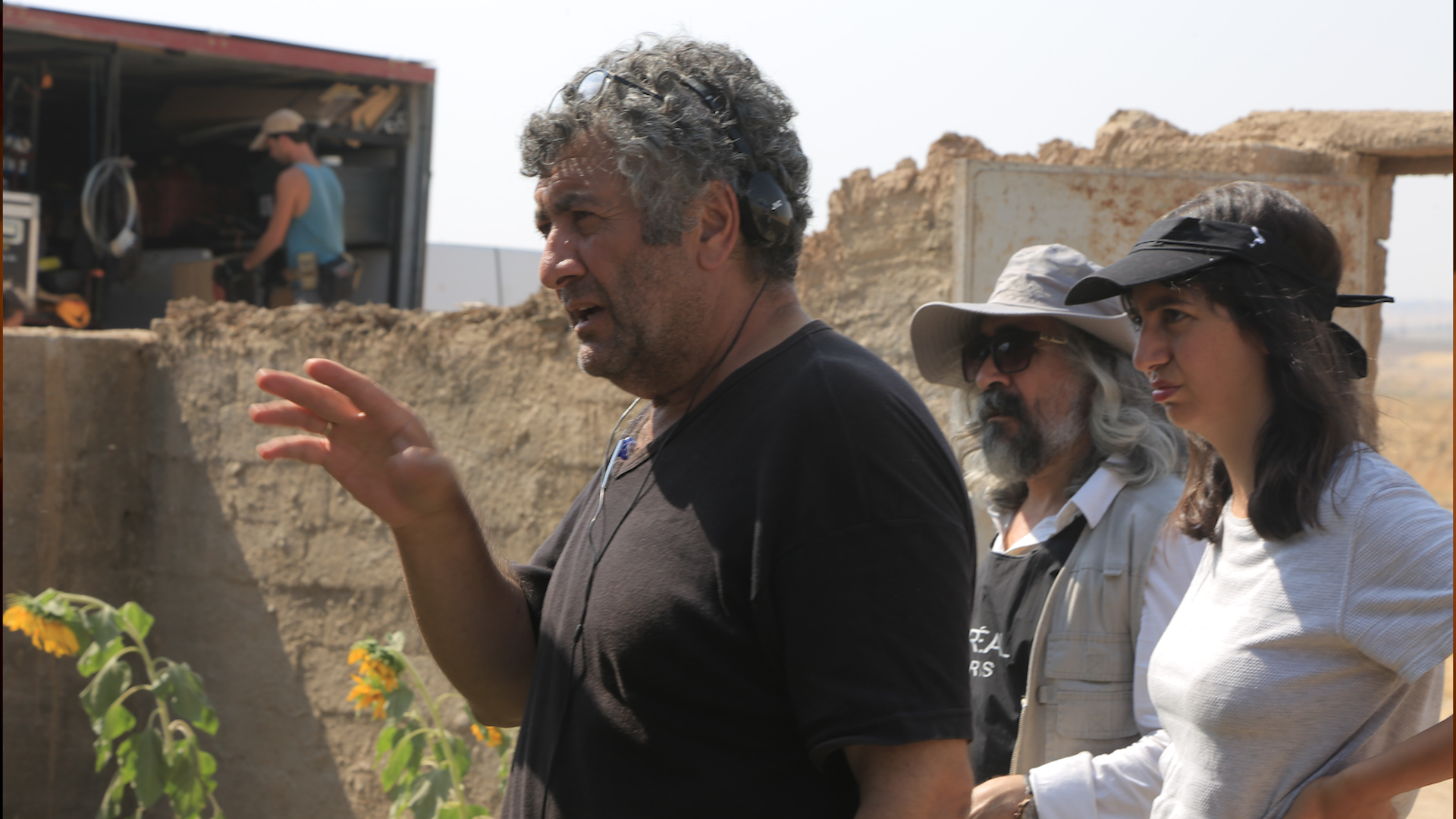
More
Why did Syrians turn to Europe for shelter? A filmmaker explains

In compliance with the JTI standards
More: SWI swissinfo.ch certified by the Journalism Trust Initiative


























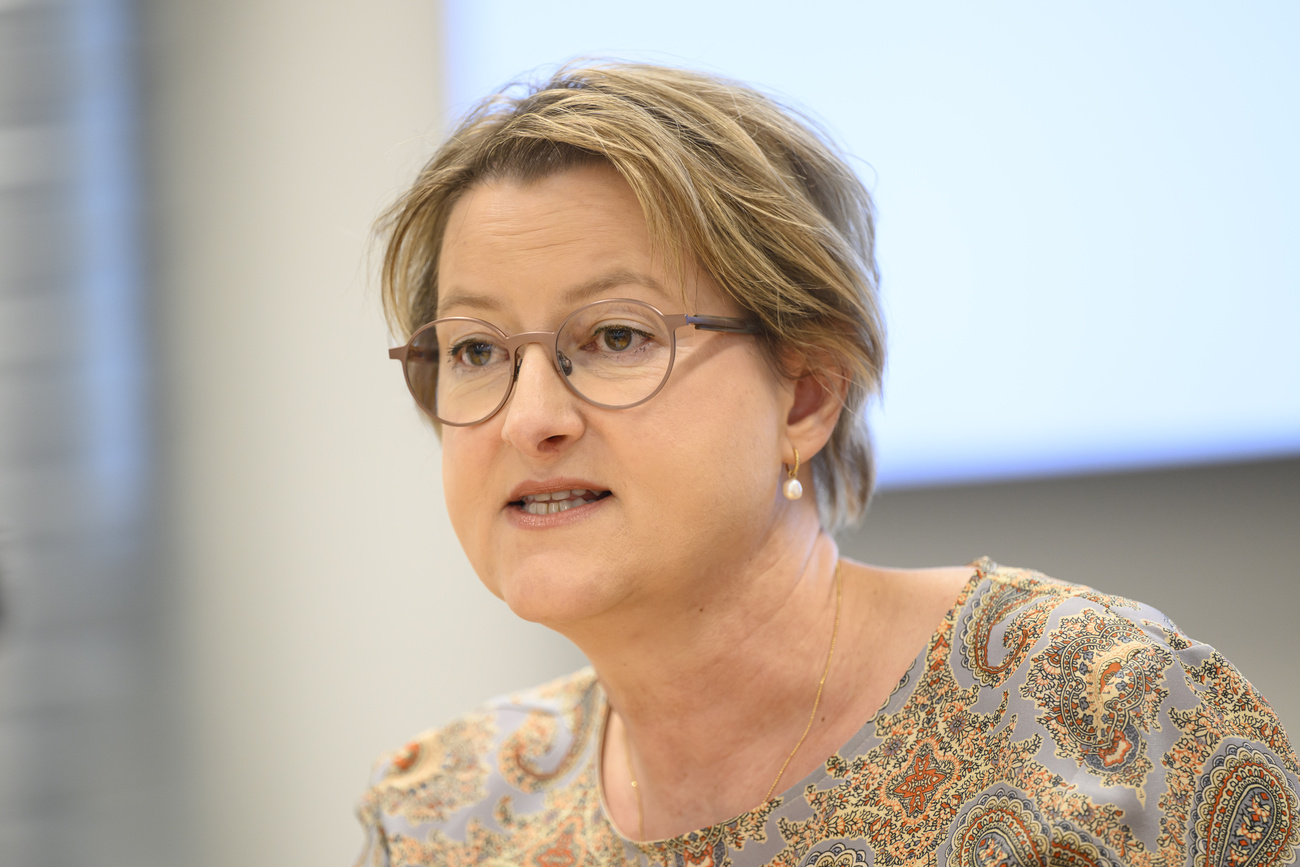



Join the conversation!